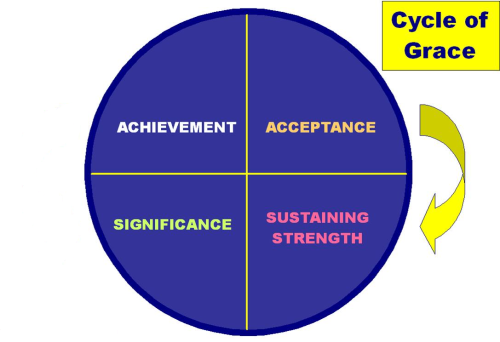The genteel villages along the Kent coast do not resonate with the charged atmosphere of invasion. However, it was along here in 54 BC that Julius Caesar landed on British shale,announcing (apparently) I came, I saw, I conquered. In 597 AD St Augustine arrived on another Kent beach with a mandate from Rome to convert the English to Christianity. Now, on Caesar's beach at Walmer, another bridgehead has been established: Sea Café.
 You would not immediately think of Sea Café as having imperial aspirations. A young woman called Grace serves gigantic cooked breakfasts to her clients (mainly old men) while a powerfully-built black guy with dreadlocks keeps an eye on proceedings and clears tables. However, if you look around carefully the statement of intent is clear. This is no ordinary café. This is a base for a mission to bring peace and harmony to the area. In front of the hearth is a shrine cluttered with candles and pebbles, quotes from the Dalai Lama and other gurus, a Buddha, fairies and child-like works of art. I had come looking for Missional Communities and here was one - out and proud in public space. Another art peace listed the values of the community.
You would not immediately think of Sea Café as having imperial aspirations. A young woman called Grace serves gigantic cooked breakfasts to her clients (mainly old men) while a powerfully-built black guy with dreadlocks keeps an eye on proceedings and clears tables. However, if you look around carefully the statement of intent is clear. This is no ordinary café. This is a base for a mission to bring peace and harmony to the area. In front of the hearth is a shrine cluttered with candles and pebbles, quotes from the Dalai Lama and other gurus, a Buddha, fairies and child-like works of art. I had come looking for Missional Communities and here was one - out and proud in public space. Another art peace listed the values of the community. 
In some ways, Sea Café is a rebuke to Missional Communities that hide away in homes, emerging once a month to do an 'out' event. But when I later spoke to the co-ordinator of MCs at the church I was visiting he made two interesting observations. The first was that Sea Café was trying to create community without communitas, a term taken from anthropology describing a group's identity established over against the society in which it operates. "Sea Café would have communitas if its members were to commit to keeping a half-mile stretch of the beach clean," said Bruce. "Otherwise it's just bacon and aspirational words."
Alan Hirsch uses the term to describe the counter-cultural thrust that a Christian community committed to the Kingdom of God must have. (You can see him expounding it here.)
The second observation was that the owners of Sea Café (Mr Dreadlocks and wife) had come to the church to enquire about having their children baptised, but nothing came of it because they then started the business, which opens on Sundays. Ouch! How different it might have been if this man of peace had been introduced to a Christian community sharing life throughout the week. He could have found his communitas and he could have taught timid Christians how to be missional. Maybe, if a few could find within themselves a commitment to eating a gigantic Full English on a regular basis, he still could.


















